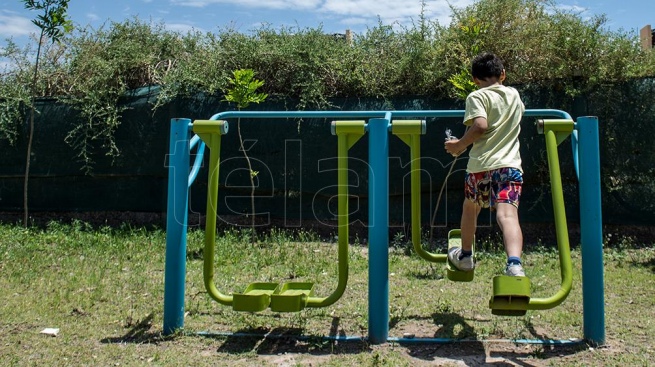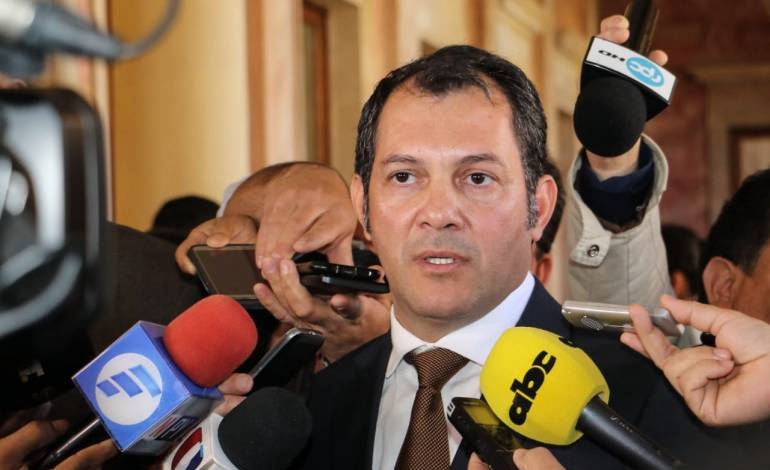The embrace when receiving them and the accompaniment when they graduate are axes of the work of the team of the Comprehensive Protection Home for Women in Situation of Violence of Santiago del Estero, which Télam visited to hear how those who reside there are putting together their new life projects.
Since 2018 the place has been operating, which has rooms, kitchen, dining room, living room, nursery and a large outdoor patio, where up to 42 women can reside with their children. To this infrastructure is added the human and professional warmth of those who work there to provide containment, help and empowerment tools.
“It is a very big job, because it is daily, we live with women and we try to contain them almost 24 hours a day,” the director of the home explained to Télam, Yesica orellana.
He stressed that when women enter “we prepare ourselves to be able to embrace them symbolically, to be able to think with that woman outside when she graduates, to follow up and refer to other organizations such as the Gender Directorate so that the psychosocial accompaniment continues.”
In this regard, Orellana pointed out that “it is essential not to lose that contact and follow-up, and it is very important for them to feel supported.”
Upon entering the home, the boys and girls run through the corridors, the mothers are gathered in the dining room, they talk, while others cook or heat the water for mate. In the large courtyard some children play, some mothers receive visits from relatives.
An environment that breathes “tranquility, peace and harmony”, say the women who live there.
“It is about believing in oneself, knowing that it is difficult, but that it can be done,” shared Alejandra (27), who is pregnant and stayed at home for two months due to a “situation of violence with my ex-partner with whom I lived for about 11 years”.
She has already graduated and started a totally different life: “I am proud to have gone out and said enough, because fear sometimes makes you endure so long and so many things.”
“Many times I tried to denounce him – the violent man – but I couldn’t and one day I could. I got here (home) and my life has totally changed, it has taken a tremendous turn and I began to have another kind of life, because my life did not it was mine, “he said.
Alejandra now lives in a house with her children and close to her mother, with whom she is linked again.
“Today I look at myself and say to myself ‘I am not that person I was before’ and I feel proud of myself,” she said.
Mariana (30) is a woman from Santiago who went to live in Neuquén with her partner, who raped her until one day she realized that she couldn’t go on like that.
He returned with his children to his home province, where “the pandemic saved me because he couldn’t come.” Thus, he related to Télam, he was able to rebuild his life.
“Before I cried of sadness and pain, today the tears are of pride” for having come out of the situation of violence, he stressed.
She asked the Neuquén Gender Directorate for help, who managed the tickets and she was able to return to her province.
From Neuquén they communicated with the Gender Directorate of Santiago, who received and contained it.
“They helped me a lot here, I was able to get a job, and I feel useful for the first time in my life,” he confessed.
Now she lives with her aunt, works in a hospital and shared excitedly that “the first day I sent my children to classes I started crying with pride, because for the first time with my money, with my work, I had been able to buy them their overalls , his supplies, his slippers. “
She also made a special request “to the neighbors, friends and family who often judge you, they tell you ‘she is with him because she likes it’, ‘she lets herself be beaten because she likes it. No, we don’t like it, but it’s hard for us to leave “.
Florencia (41) gets excited every time she wants to participate in the talk.
“It’s not easy to get out, but with the help of my family and the Gender Directorate, I have been able,” she said, saying that for many years “they had drilled her head, telling me that she couldn’t do it alone.”
“Now our house is a home, we breathe differently, we live differently, we chat with the boys, we laugh, we laugh from within, when before it was drawn or forced to show something to others that it was not,” he said.
And she continued: “Now there is peace, I feel good and proud because we are brave women, because we can go out, despite all the fear and we can ask for help, because there are people who are there to support us, help us and take off that bandage that we have had. many years”.
In that circle of women there is also Rosa (36), who only came home four days ago, and Débora (31), who did so just a month ago.
Listening to and accompanying each other among those who have graduated, those who have been here for a while and those who have just started reconstruction, is part of the repair process for them.
The director of the home stressed that “we are all learning and we learn with women to be able to overcome situations of violence.”
The home works 24 hours a day, and the on-call phones are: cell 385-5899337 or landline 385- 69990335.


















